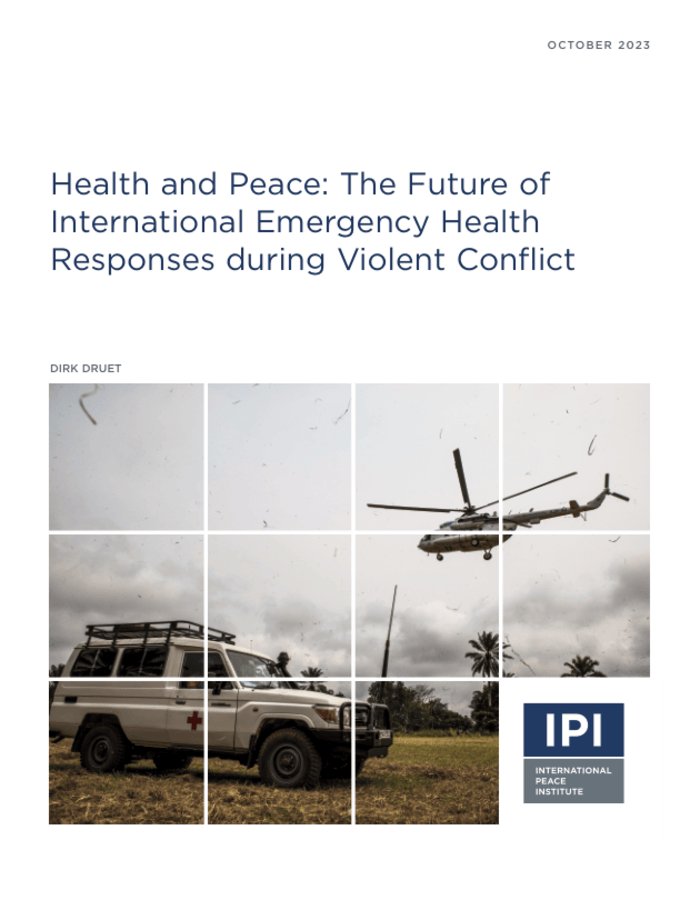
Recent health emergencies such as the 2018–2020 Ebola crisis in eastern Democratic Republic of the Congo (DRC), in conjunction with the early stages of the COVID-19 pandemic, demonstrate the importance of health responses that take the local context into account, especially in settings that are already affected by violent conflict. When humanitarian health responses fail to understand and adapt to their impact on conflict dynamics, they risk
exacerbating those dynamics, impeding the health response, and placing health workers at risk. As healthcare becomes increasingly politicized, it is more crucial than ever to recognize the links between health and peace and promote a more deliberate approach to delivering emergency health responses in violent conflict environments.
The World Health Organization’s (WHO) new Global Health and Peace Initiative (GHPI) emphasizes the need for emergency health responses that are both “conflict-sensitive” and “peace-responsive.” The process of developing the GHPI has reflected ongoing debates on the appropriate parameters for action at the intersection of health and peace. Under its first pillar—conflict sensitivity—the GHPI recommends strategies for adhering to the “do no harm” principle. Yet this principle can be in tension with the core principles of humanitarian health actors, including neutrality and impartiality. Under its second pillar—peace responsiveness—the GHPI applies the tools of conflict sensitivity to programming that seeks to proactively build peace through development and humanitarian activities. The GHPI recognizes that peace-responsive programming may not always be possible, and indeed, it is unclear under what
conditions health actors should pursue such programming in conflict situations, if at all. The GHPI also grapples with challenges and risks related to ensuring national ownership over health and peace programming when the state is a party to the conflict, treating healthcare as a convener and common good in violent conflict environments, and
coordinating between health actors and peace and security actors engaged in health programming.
These dilemmas have operational implications that WHO and its partners will need to address when operationalizing the GHPI. Conflict-sensitive and peace-responsive health programming needs to manage the risks of politicization and securitization, such as the instrumentalization of activities by the government. Managing this risk requires strong
political leadership, whether through the heads of WHO country offices or other senior officials. The following recommendations are aimed at helping WHO and its partners navigate these challenges when operationalizing the GHPI in violent conflict environments.
- WHO should develop the GHPI conceptual framework further, including by elaborating on when health actors should pursue peace-responsive programming and how they should coordinate with peace and security actors, as well as the relationship between the GHPI and political processes.
- WHO should design a strategy to operationalize the GHPI in violent conflict settings, including by developing tools, guidance, and training on conflict-sensitive analysis and programming; identifying the political skills required of those leading the implementation of such programming; and clarifying how to manage ethical dilemmas.
- The Executive Office of the Secretary-General should conduct a formal assessment of the Ebola emergency coordinator position during the 2018–2020 Ebola crisis.
- The UN Department for Safety and Security should review security risk assessment processes and safety and security measures and develop an inventory of safety and security measures that could be used in place of armed security.
- The UN Department of Peace Operations should review operational guidance for armed escorts and area security during site visits.
